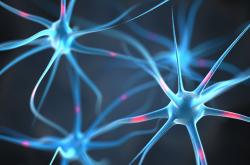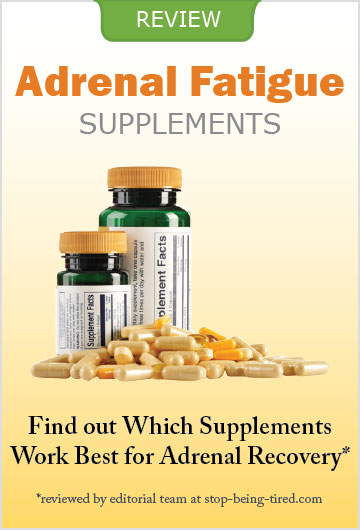What is Pregnenolone Steal and Why is it Important for Adrenal Fatigue Sufferers?
Pregnenolone is one of the adrenal hormones. Fatigued people often suffer from the so-called pregnenolone steal syndrome. Learn why this happens, the signs of this syndrome and how to alleviate its effects.
In any conversation about adrenal fatigue and the role of the adrenal glands, there is one hormone that often receives far less attention than it deserves. This hormone, known as pregnenolone, occupies a pivotal role within the body’s adrenal system. Unfortunately, the damaging effects of rampaging cortisol are of such great concern that its impact on the production of other hormones is easy to overlook.
Pregnenolone and its Place in the Hormonal Cascade
To fully understand the effects of adrenal fatigue, it is important to understand exactly how this syndrome works to exhaust your adrenals and how that exhaustion impacts every area of health. That understanding is not possible without a discussion of the importance role of pregnenolone within the hormonal cascade, and why this hormone is so critical for human health.
Pregnenolone’s Role
Pregnenolone sits at the top of the adrenal gland hormonal cascade. It is a steroid hormone that serves as a precursor for all of the other adrenal hormones that the body manufactures. As such, it is used in the creation of aldosterone, progesterone that gets synthesized into cortisol, and the androstenedione that eventually becomes estrogen and testosterone. Without this hormone in sufficient quantities, the body will struggle to keep pace with many of its most basic needs.
Why Pregnenolone Is Critical for Health
There have been a number of studies conducted on the impact pregnenolone has on the body, as well as on the brain. For healthy people, this hormone not only keeps energy levels at a high rate, but also elevates overall mental acuity and mood. It is also recognized as a key component for managing stress. Those effects alone make it a critical part of maintaining peak health.
In addition to those benefits, however, pregnenolone provides many others:
- It affects cognitive abilities
- It impacts the immune system
- It has a role in maintaining the health of your skin
- It can impact your sleep cycle
- It helps manage the stress response
- It influences female reproduction cycles
In short, pregnenolone is an indispensible ingredient for good health. That makes it particularly dangerous when this hormone is unable to fulfill its role within the hormonal cascade. And one of the most serious threats to its ability to meet its obligations can occur when it is stolen as a result of the body’s need for increased cortisol.
The Pregnenolone Steal
The pregnenolone steal is a heist that originates with the body’s reaction to perceived stress. The stress response triggers the release of cortisol. Like other hormones in the adrenal cascade, cortisol relies upon the precursor hormone pregnenolone. Because of that, heightened stress can over-stimulate the adrenal glands and cause them to divert pregnenolone away from the creation of other hormones, in an attempt to ensure adequate precursor supplies for the production of cortisol.
This is because our bodies are designed to deal with stress in one manner and one manner only: prioritize survival at all costs. That means that cortisol takes priority over the sex hormones and other chemicals, since cortisol bears the responsibility for priming the cells and muscle tissues to deal with whatever perceived danger is on the horizon. It’s a natural and – at least in physically dangerous situations – perfectly designed survival mechanism. It can just have some unfortunate consequences when stress is exaggerated or chronic in nature.
How This Theft Affects Your Body
Here’s the problem with all of this: you need pregnenolone for more than just cortisol. And since that pregnenolone is used as a precursor for manufacturing everything from aldosterone to the sex hormones, when it gets diverted all of the bodily systems that rely on those other hormones get disrupted. That can lead to a whole range of health concerns.
In addition to the fatigue that the entire process causes, you can also experience a dramatic loss of libido. Sexual characteristics can also be impacted as the condition continues, and men can experience a loss of bone density, muscle mass and strength, and an increase in fat. There are mental consequences as well, as men suffer from self-confidence issues and an inability to concentrate. In women, diminishing levels of their sex hormones can result in failure of the ovaries, atrophy in the vaginal region, and other signs of menopause.
Even worse for fatigue sufferers are the many ways that pregnenolone deficiencies can impact their condition. When the level of this critical hormone is reduced through diversion to cortisol, fatigue increases. Muscles become weaker, and aches in the joints become more common and pronounced. Overall mobility can be reduced, which can cause the type of sedentary habits that lead to diabetes and high blood pressure.
How You Can Prevent the Damage
Obviously, this is not a condition that can be ignored for long. The fact is that anyone who suspects that he or she is suffering from fatigue can reasonably assume that pregnenolone levels are lower than they should be. And while testing can be helpful if you want to know for sure, the fact remains that the steps you need to take to limit the effects of the pregnenolone steal are so beneficial that you should be making the changes regardless of what the test might reveal.
To prevent further damage and restore your pregnenolone levels to where they should be, you have to focus on the source of the problem. That means addressing those issues that contribute to the stress response that is triggering the theft of this hormone. Deep breathing and meditation for stress management can help. So too can changes in diet, a consistent exercise regimen, and active efforts to avoid your most common stressors. As always, managing your stress response is always the best way to deal with any fatigue-related health issue.
You might also be interested in:
- Hormones and Chronic Stress. http://biohealthlab.com/test-menu/hormones/hormones-and-chronic-stress/
- Adrenal Fatigue and Hormone Therapy. http://www.drlam.com/articles/adrenal_fatigue_and_hormone.asp
- HPA Axis: What Is Pregnenolone Steal? http://paleoforwomen.com/hpa-axis-what-is-pregnenolone-steal/
- Stress and Hormones: The Pregnenolone Steal. http://www.acubalance.ca/blog/stress-and-hormones-the-pregnenolone-steal
- Pregnenolone Deficiency Symptoms. http://www.livestrong.com/article/268663-pregnenolone-deficiency-symptoms














.jpg)




Leave a comment